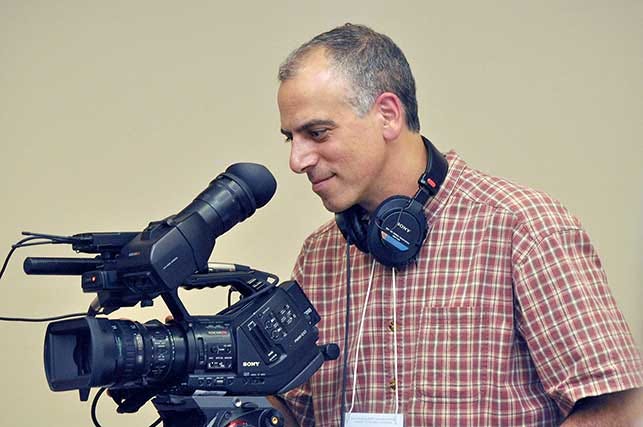Micah was once told he had an IQ of 40, today he teaches college courses.
“If you walk up to 10 people on the street and ask how to measure intelligence, I bet nine of those people will say an IQ test,” filmmaker Dan Habib explains. “That’s flawed and dangerous.”
IQ tests don’t measure a person’s intelligence; worse, they marginalize people from the rest of society. As a child, if you’re saddled with a number that’s too low, you may never have the same chances as other kids.

In his new film, Intelligent Lives, Habib introduces viewers to three pioneering young American adults with intellectual disabilities — Micah, Naieer and Naomie — who challenge perceptions of intellect as they navigate high school, college and the workforce.
For Habib, it’s a personal story as well. His 18-year-old son Samuel has cerebral palsy and uses a communication device to speak; these visual markers of difference frequently lead him to be treated as childlike.
“Even though he has graduated from high school and is now in college, he has long been underestimated,” Habib says. “People’s perception of his disabilities has been a major obstacle.”

Statistically, people with intellectual disabilities are the most segregated group in America. It starts at a young age as they’re placed in separate classes, and spirals into adulthood when they are refused work because they are different.
“I want this film to be a catalyst for understanding the strategies and practices that support people with intellectual disabilities and allow them to be included in all aspects of society,” Habib explains.
The AFT supports Habib’s vision for a more inclusive future, and is a sponsor of the Intelligent Lives project. The film challenges society’s definition of intelligence, and points to a future in which people of all abilities can fully participate in higher education, meaningful employment and intimate relationships.

There are many ways you can be part of this movement. Screenings of the film are happening across the country, or you can host your own. Find out other ways you can help.
This blog post is re-published with permission from AFT Voices. Read the original post. To learn more about AFT's Schoolhouse Voices from PreK-12 public educators, visit: https://aftvoices.org/school-house-voices/home. Follow on Twitter @rweingarten or on Facebook https://www.facebook.com/AFTunion.











